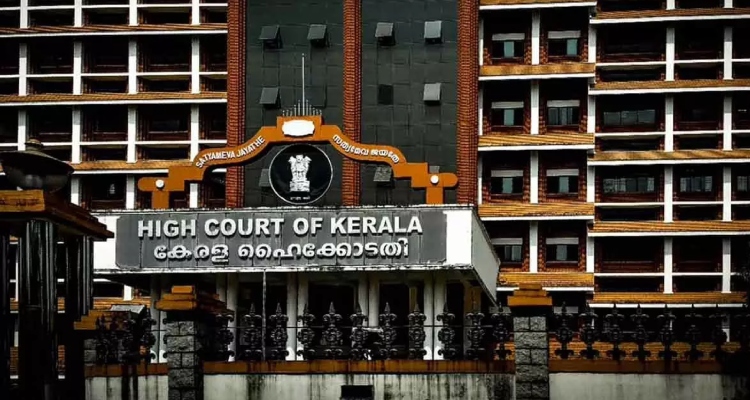
The Kerala High Court has firmly prohibited the installation of flex boards in temples that showcase or praise political leaders and the Travancore Devaswom Board (TDB).
The court stressed that temples are places for devotion and spiritual solace, not platforms for political promotion or advertisements.
A division bench comprising Justices Anil K. Narendran and Muralee Krishna S issued the directive during a hearing on a suo motu plea. The plea was initiated after a complaint regarding a flex board at the Thuravoor Mahakshetram temple in Alappuzha district. The board featured photos of Chief Minister Pinarayi Vijayan, Devaswom Minister V. N. Vasavan, the TDB president, and a local MLA.
It also congratulated the ruling government and the TDB for introducing annadanam (free food distribution) for Sabarimala pilgrims during the ongoing Mandalakala-Makaravilakku season.
Expressing dissatisfaction with such displays, the court made it clear that temples are sacred spaces. “Devotees come to temples to worship and seek blessings, not to see images of the Chief Minister, MLAs, or Devaswom Board members,” the bench observed.
It reminded the TDB that its role is that of a trustee, tasked with managing temples for the benefit of devotees, rather than using temple premises for self-promotion.
The court also emphasized that temples, particularly those serving as halting points (edathavalams) for pilgrims, must focus on providing essential facilities rather than engaging in unrelated activities. Highlighting the misuse of resources, the bench stated that funds donated by devotees should not be diverted to erect promotional flex boards.
In its directive, the High Court sought clarification from the TDB and other relevant authorities regarding their stance on the issue. It also ordered the TDB to disclose whether similar flex boards had been installed at other temples under its management, including those designated as edathavalams.
Furthermore, the bench criticized the role of temple advisory committees in such instances, asserting that installing promotional boards is not their responsibility. It reiterated that funds collected from devotees must be used solely for temple-related purposes and facilities for pilgrims.
This ruling serves as a strong reminder of the sanctity of temples, emphasizing that they must remain spaces for spiritual reflection, untainted by political or promotional agendas. The court’s intervention aims to ensure that temples prioritize the needs of worshippers and preserve their sacred purpose.




